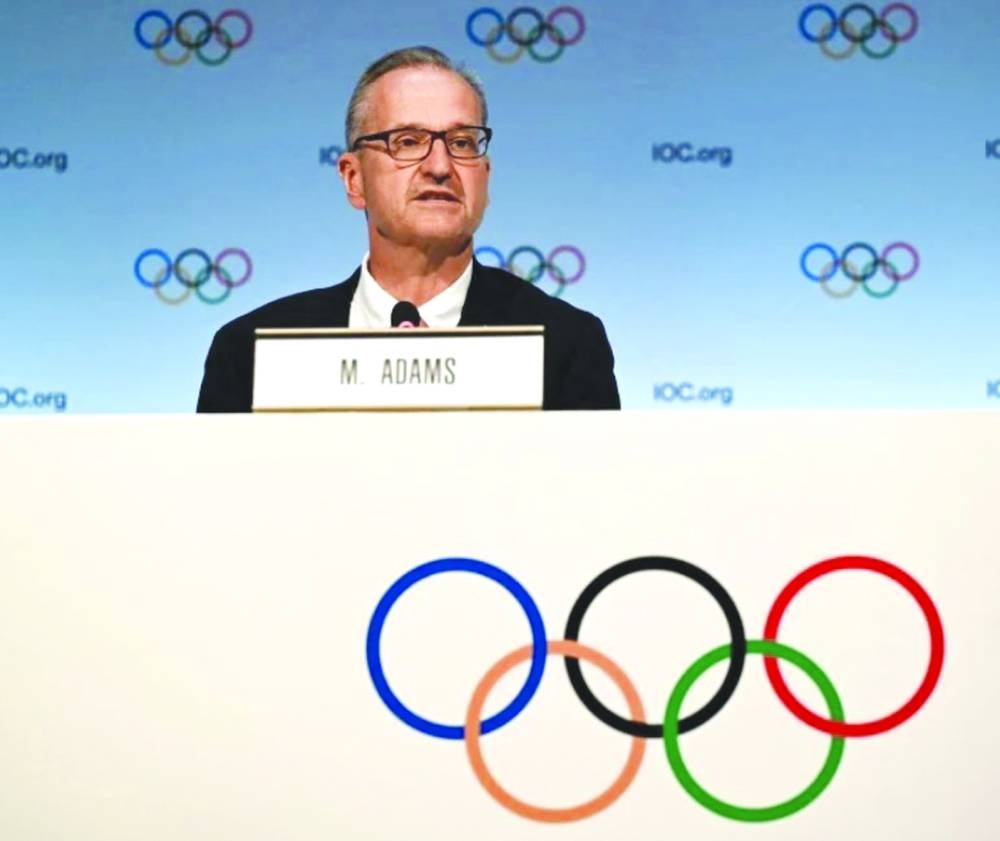Moscow’s criticism of Olympic restrictions on Russian athletes was beyond unacceptable and had reached a “new low”, the International Olympic Committee (IOC) said on Wednesday.
“It goes beyond anything that is acceptable. To link the president (Germany’s Thomas Bach), his nationality and the Holocaust in the context of this issue reaches a new low,” IOC spokesman Mark Adams said.
The IOC on Tuesday both barred Russian athletes from taking part in the opening ceremony of the 2024 Paris Olympics on July 26 and criticised the Kremlin for planning to hold its own “Friendship Games” to rival those held in the French capital.
Those decisions invoked the ire of the Kremlin, Russian foreign ministry spokeswoman Maria Zakharova saying that they “demonstrate how far the IOC has moved away from its stated principles and slipped into racism and neo-Nazism”.
When Bach was asked about the comments, the German gave a curt reply before asking spokesman Adams to take over.
There are “more quotes coming from Russia that are extremely aggressive and since some of them are very personal also, if you allow I would like to ask Mark Adams to respond to this question”, Bach said.
Adams added: “We’ve seen some very aggressive statements coming out of Russia today, but there’s one comment even which is going beyond that, we’ve even seen one that links the president, his nationality and the Holocaust, and this is completely unacceptable and reaches a new low.”
When asked if security had been boosted around Bach, Adams said: “As regards security, I think it’s as well that I remind you that we cannot speak of the details about security and understand that with the current geo-political situation and with the impact it’s having on the IOC and its president, all appropriate measures have been taken.”
The IOC suspended Russia from the 2024 Games last year, but gave the green light for its athletes to compete as neutrals as long as they did not actively support the Kremlin’s assault on Ukraine.
Russian foreign ministry spokeswoman Zakharova argued that this neutral status forces Russian athletes to “renounce any association with their homeland, with their citizenship, with their history, culture and people”.
“The IOC’s decisions are wrongful, unjust and unacceptable,” she said. “We are outraged by the unprecedented discriminatory conditions imposed by the International Olympic Committee on Russian athletes.”
Russia’s fury comes a day after the IOC issued a strongly-worded statement accusing the Kremlin of “politicising sport” by planning to hold its own Friendship Games.
Announced several months ago, the first edition of the Summer Friendship Games is “planned to be held in Moscow and Yekaterinburg” next September, the IOC said, with the first winter edition to take place in 2026 in Sochi, the venue for the highly controversial 2014 Winter Olympics.

Mark Adams, IOC spokesman
